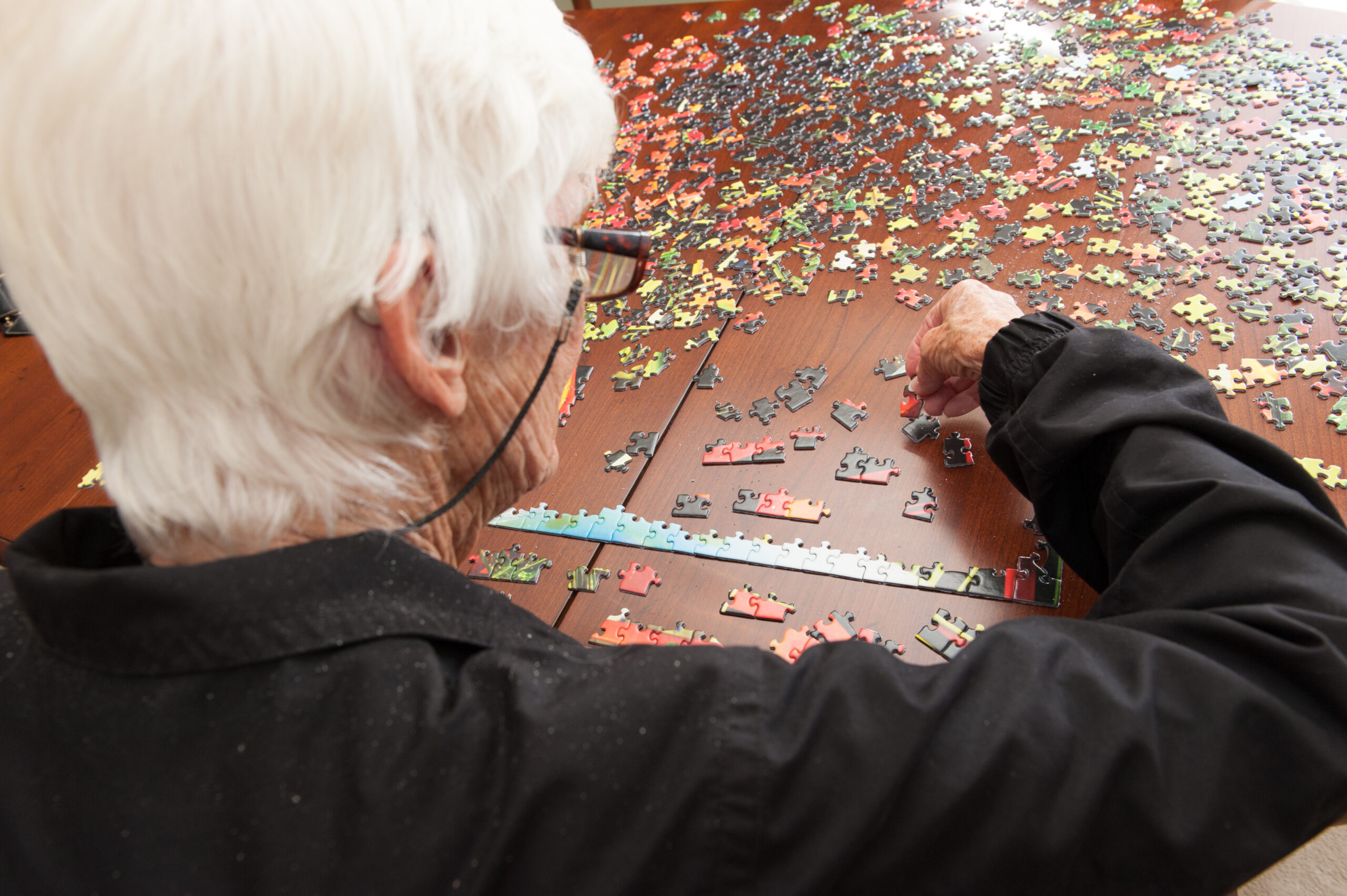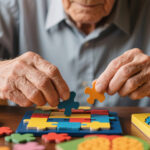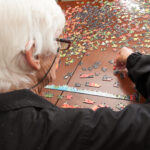Dementia, a progressive condition characterized by cognitive decline, profoundly impacts not only the individuals diagnosed but also their families and caregivers. The journey through dementia is often marked by a gradual loss of memory, reasoning, and the ability to perform daily tasks, leading to significant emotional and practical challenges. It is a path that can feel isolating and overwhelming, where moments of clarity are interspersed with confusion, and familiar routines slowly give way to new realities. Yet, amidst these difficulties, there remains a powerful opportunity to foster connection, maintain dignity, and enhance the quality of life for those living with dementia. This is where the thoughtful implementation of memory care activities becomes not just beneficial, but truly essential.
This comprehensive article aims to illuminate the landscape of memory care activities, providing practical, empathetic, and stage-appropriate guidance for families and caregivers. We will delve into activities specifically designed for the early, middle, and late stages of dementia, recognizing that engagement strategies must evolve as the disease progresses. Our goal is to offer actionable advice that empowers caregivers to create meaningful interactions, stimulate cognitive function where possible, and provide comfort and joy. Beyond the activities themselves, we will also touch upon the crucial role of specialized care and robust support systems, acknowledging that no one should navigate this journey alone. By understanding and adapting to the changing needs of individuals with dementia, we can transform challenging moments into opportunities for connection, preserving their sense of self and enriching their lives, one thoughtful activity at a time.
Understanding Dementia and the Importance of Activities
Dementia is an umbrella term for a group of symptoms affecting memory, thinking, and social abilities severely enough to interfere with daily functioning. It\’s not a single disease but rather a general term that describes a wide range of specific conditions, such as Alzheimer\’s disease, which is the most common cause of dementia. Other forms include vascular dementia, Lewy body dementia, and frontotemporal dementia. Each type can present with slightly different symptoms and progression patterns, but all lead to a decline in cognitive abilities over time. Understanding the specific type and stage of dementia is crucial for tailoring care and activities effectively.
Why are activities so crucial in dementia care? The benefits extend far beyond mere distraction. Engaging in appropriate activities can significantly impact an individual\’s cognitive function, emotional well-being, and overall quality of life. For instance, cognitive stimulation can help maintain existing neural pathways and potentially slow the rate of decline. Emotionally, activities can reduce feelings of anxiety, depression, and agitation, replacing them with a sense of purpose, accomplishment, and joy. They can also help maintain a sense of identity and dignity, allowing individuals to feel valued and connected. Furthermore, physical activities can improve mobility, balance, and sleep patterns, while social engagement combats isolation and fosters meaningful interactions.
Key principles underpin effective activity planning for individuals with dementia. Firstly, a person-centered approach is paramount. This means understanding the individual\’s life history, preferences, hobbies, and remaining abilities. What brought them joy in the past? What skills do they still possess? Activities should be tailored to these unique aspects, rather than a one-size-fits-all solution. Secondly, flexibility is vital. The progression of dementia is unpredictable, and an activity that works one day might not work the next. Caregivers must be prepared to adapt, modify, or even abandon activities based on the individual\’s mood, energy levels, and cognitive state. Thirdly, safety is non-negotiable. Activities must be conducted in a secure environment, free from hazards, and with appropriate supervision. Lastly, the goal is not perfection but participation and enjoyment. The focus should be on the process and the positive experience, not on the outcome or the \’correctness\’ of the activity. By adhering to these principles, caregivers can create a supportive and enriching environment that truly benefits the person living with dementia.
Early Stage Dementia: Maintaining Independence and Engagement
In the early stages of dementia, individuals often experience mild cognitive impairment, which might manifest as forgetfulness, difficulty finding words, or challenges with complex problem-solving. Despite these changes, they are typically still largely independent, capable of managing most daily tasks, and often acutely aware of their cognitive shifts. This stage is crucial for intervention, as activities can play a significant role in maintaining cognitive function, preserving a sense of self, and delaying the progression of symptoms. The primary goals for activities during this period are to foster continued independence, maintain social connections, provide a sense of purpose, and encourage physical activity.
Cognitive stimulation remains a cornerstone of early-stage dementia care. Activities that challenge the mind in enjoyable ways can help keep neural pathways active. This includes engaging in puzzles, such as crosswords, Sudoku, or jigsaw puzzles, which can stimulate problem-solving skills. Card games and board games, especially those that involve strategy or memory, can also be highly beneficial. Reading, whether it\’s books, newspapers, or magazines, encourages comprehension and vocabulary retention. Learning new skills, even simple ones like a few phrases in a new language, a basic musical instrument, or a new craft, can provide mental exercise and a sense of accomplishment. Journaling or writing short stories can also help individuals express themselves and organize their thoughts.
Social engagement is equally vital to combat potential isolation and maintain emotional well-being. Group outings, such as visits to museums, parks, or community centers, can provide opportunities for interaction and stimulation. Joining social clubs or interest groups that align with their past hobbies can help maintain friendships and a sense of belonging. Family gatherings, where the individual feels included and valued, are also incredibly important. Reminiscence activities, like looking through old photo albums and sharing stories, can strengthen personal identity and connection to loved ones. These interactions not only provide emotional support but also offer gentle cognitive stimulation through conversation and memory recall.
Physical activities are essential for overall health and can positively impact cognitive function and mood. Regular walking, gardening, light exercise routines, or even dancing can improve cardiovascular health, balance, and coordination. Tai chi, with its gentle movements and focus on breath, can enhance both physical and mental well-being. Creative pursuits offer another avenue for expression and engagement. Painting, drawing, pottery, or engaging in music appreciation (listening to favorite genres, attending concerts) can tap into different parts of the brain and provide immense joy. Even practical life skills, such as cooking, baking, or performing simple household chores, can be adapted to allow continued participation, fostering a sense of contribution and purpose.
For families navigating this stage, ensuring consistent engagement can sometimes be challenging alongside other responsibilities. This is where professional support can make a significant difference. In-home dementia care services can provide trained caregivers who understand the nuances of early-stage dementia and can implement these activities effectively, ensuring the individual remains engaged and supported in their familiar environment. Such specialized care allows individuals to continue their routines and activities with expert assistance, promoting independence and well-being. For more information on how professional in-home support can enhance the quality of life for those in the early stages of dementia, consider exploring resources at sharphomecare.com.
Middle Stage Dementia: Adapting to Increased Needs
As dementia progresses into the middle stage, individuals typically experience more pronounced cognitive decline. This often includes increased confusion, greater difficulty with complex tasks, and challenges with communication. Memory loss becomes more significant, and individuals may struggle to recognize familiar faces or places. Behavioral changes, such as agitation, wandering, or repetitive actions, can also become more common. At this stage, the focus of activities shifts from maintaining independence to providing comfort, reducing anxiety, maintaining routine, and encouraging sensory engagement. Activities need to be simplified, broken down into smaller steps, and often require more direct supervision and assistance.
Sensory stimulation becomes particularly effective in the middle stage. Activities that engage the senses can be calming and provide a connection to the present moment. Music therapy, for instance, can evoke strong emotional responses and memories, even when verbal communication is limited. Playing familiar songs, singing along, or listening to calming melodies can reduce agitation and improve mood. Aromatherapy, using gentle and familiar scents like lavender or vanilla, can also have a soothing effect. Tactile activities, such as sorting objects (buttons, beads, or different fabrics), working with playdough or clay, or engaging with textured blankets, can provide a sense of engagement and comfort. Supervised nature walks, even short ones, allow individuals to experience fresh air, sunlight, and the sounds and sights of the outdoors, which can be incredibly grounding.
Reminiscence therapy continues to be valuable, though it may need to be adapted. Instead of open-ended questions, caregivers might use prompts like old photographs, familiar objects from their past, or music from their youth to spark memories and conversation. Creating a ‘memory box’ filled with items that hold personal significance can be a wonderful tool for gentle engagement. Simple creative activities, such as coloring books, painting with large brushes, or simple craft projects, can provide an outlet for expression without requiring complex cognitive processes. Listening to music or singing familiar songs together can be a powerful way to connect and share moments of joy.
Adapted physical activities are still important for maintaining physical health and reducing restlessness. Chair exercises, gentle stretching, or walking with assistance can help maintain mobility and prevent muscle stiffness. The key is to keep movements simple, repetitive, and safe. Routine-based activities, which tap into long-term procedural memory, can also be very comforting. Simple meal preparation tasks, like stirring ingredients or setting the table, folding laundry, or watering plants, can provide a sense of purpose and familiarity. These activities should be done without pressure and with plenty of encouragement.
Navigating the middle stages of dementia often requires a higher level of care and specialized understanding. Families may find themselves needing more support to manage the increased needs and behavioral changes that can arise. Specialized dementia caregivers are trained to handle these complexities, offering tailored support that ensures safety, promotes engagement, and provides much-needed respite for family members. These professionals can implement personalized activity plans, manage challenging behaviors with compassion, and create a stable, supportive environment. For families seeking expert assistance during this challenging phase, exploring options for specialized dementia caregivers can provide invaluable peace of mind and enhance the quality of care. You can learn more about how specialized caregivers can support your loved one at sharphomecare.com.
Late Stage Dementia: Focusing on Comfort and Connection
In the late stages of dementia, individuals experience severe cognitive and physical decline. Communication may be very limited or non-verbal, and they become increasingly dependent on caregivers for all aspects of daily living. Mobility may be significantly impaired, and they may spend much of their time in bed or a wheelchair. At this advanced stage, the goals for activities shift profoundly. The focus is no longer on cognitive stimulation or skill maintenance, but primarily on ensuring comfort, providing gentle sensory stimulation, maintaining human connection, and preventing isolation. The aim is to enhance their quality of life through gentle, reassuring interactions.
Gentle sensory engagement becomes paramount. Activities should be designed to provide comfort and a sense of peace. Soft music, particularly familiar melodies or calming instrumental pieces, can be very soothing. Gentle touch, such as a hand massage with lotion, stroking their hair, or simply holding their hand, can provide immense comfort and connection. Aromatherapy, using mild and pleasant scents, can also create a relaxing environment. Looking at colorful, visually appealing objects, or watching simple, calming videos (like nature scenes or aquariums) can offer gentle visual stimulation without being overwhelming. Being read to, even if comprehension is limited, can provide a comforting presence and the soothing sound of a familiar voice.
Passive engagement allows individuals to experience their surroundings without the pressure of active participation. This could involve simply being present in a room where family activities are happening, listening to conversations, or observing the gentle movements of people around them. Watching nature videos or listening to calming sounds like ocean waves or birdsong can provide a peaceful backdrop. The mere presence of a loved one or caregiver, offering quiet companionship, can be profoundly reassuring and reduce feelings of loneliness or anxiety.
Comforting presence and physical care are intertwined with activities at this stage. Gentle grooming, such as brushing hair or a warm face cloth, can be a comforting and dignified experience. Maintaining eye contact, smiling, and speaking in a soft, reassuring tone are crucial for maintaining human connection. Adapted physical activities, such as passive range of motion exercises (always with professional guidance to prevent injury), and frequent repositioning for comfort, are essential for physical well-being and can also be a form of gentle interaction.
As the needs of individuals in late-stage dementia become more complex, families often require comprehensive support. This can include specialized care arrangements such as 24-hour care, which ensures constant supervision and assistance, or transitional care services, which provide a bridge between different care settings, such as hospital to home. These services are designed to manage advanced needs, including complex medical care, personal care, and specialized activity provision, ensuring the individual receives continuous, high-quality support. For detailed information on comprehensive care solutions, including 24-hour care and transitional care services, visit sharphomecare.com.
Furthermore, individuals with late-stage dementia may face medical emergencies or require hospital stays. During these critical times, the unfamiliar environment and disruption to routine can be particularly distressing. Specialized hospital sitting services become invaluable in such situations. These services provide dedicated companions who understand the unique needs of dementia patients, offering continuous supervision, comfort, and advocacy within the hospital setting. They help reduce agitation, prevent falls, and ensure that the patient\’s specific care requirements are communicated and met, providing peace of mind for families. To learn more about how specialized hospital sitting services can support your loved one during medical emergencies or hospitalizations, please visit thehospitalsitters.com.
General Principles for All Stages
While activities must be tailored to the specific stage of dementia, several overarching principles apply throughout the entire journey. Adhering to these guidelines can significantly enhance the effectiveness of any activity and contribute to the overall well-being of the individual with dementia.
Observation is Key: Every individual with dementia is unique, and their responses to activities can vary greatly. Caregivers must be keen observers, paying close attention to verbal and non-verbal cues. Does the person seem engaged, happy, or calm? Or do they appear frustrated, agitated, or withdrawn? These observations should guide the choice and adaptation of activities. What works one day might not work the next, and what one person enjoys, another might dislike. Continuous observation helps in understanding individual preferences, triggers, and comfort levels, allowing for a truly person-centered approach.
Flexibility and Patience: The progression of dementia is rarely linear, and abilities can fluctuate from day to day, or even hour to hour. Therefore, flexibility is paramount. Caregivers should be prepared to modify an activity on the fly, simplify it, or even abandon it if it\’s not working. Patience is equally crucial. Rushing or pressuring an individual with dementia can lead to frustration and resistance. Allowing ample time for tasks, offering gentle encouragement, and celebrating small successes can make a significant difference in their willingness to participate and enjoy the activity.
Creating a Safe and Supportive Environment: The environment plays a critical role in the success of memory care activities. A safe, familiar, and calm setting can reduce anxiety and confusion. This involves minimizing distractions, such as loud noises or excessive clutter, and ensuring the physical space is comfortable and free from hazards. Good lighting, comfortable seating, and easy access to materials can all contribute to a more positive experience. A supportive environment also means fostering an atmosphere of acceptance and understanding, where mistakes are not criticized, and efforts are always appreciated.
Involving Family and Friends: Dementia care is a journey best shared. Encouraging the participation of family members and friends in activities can provide invaluable emotional support for the individual with dementia and strengthen their social connections. It also helps family members understand the disease better and learn effective ways to interact. Shared activities can create new, cherished memories and reinforce the bond between loved ones, reminding the individual that they are still a valued part of their family and community.
Professional Guidance: While family caregivers provide invaluable support, there are times when professional guidance is essential. Healthcare professionals, occupational therapists, social workers, and specialized dementia care providers can offer expert advice on activity planning, managing challenging behaviors, and navigating the complexities of the disease. They can also help connect families with support groups and resources. Knowing when to seek help and accepting support is a sign of strength, ensuring that both the individual with dementia and their caregivers receive the best possible care and assistance throughout the journey.
Conclusion
The journey through dementia is undeniably challenging, marked by continuous change and evolving needs. However, as we have explored, the power of thoughtful, tailored memory care activities cannot be overstated. From the early stages, where the focus is on maintaining independence and cognitive function, to the middle stages, which prioritize comfort and sensory engagement, and finally to the late stages, where gentle connection and dignity are paramount, activities serve as vital bridges. They help preserve a sense of self, reduce anxiety, foster connection, and ultimately enhance the quality of life for individuals living with dementia.
By embracing a person-centered approach, remaining flexible, and observing the unique responses of each individual, caregivers can transform daily routines into meaningful interactions. The integration of cognitive, social, physical, and creative activities, adapted to each stage, provides a framework for continued engagement and well-being. Moreover, recognizing the value of professional support, whether through in-home dementia care, specialized caregivers, 24-hour assistance, or hospital sitting services, ensures that both individuals with dementia and their families receive the comprehensive care they deserve.
Ultimately, this article aims to empower families and caregivers with practical strategies and a renewed sense of hope. Even in the face of profound cognitive decline, the capacity for connection, comfort, and moments of joy remains. By dedicating ourselves to understanding and implementing these memory care activities, we can make a significant difference in the lives of those affected by dementia, affirming their worth and enriching their journey, and our, shared human experience.















